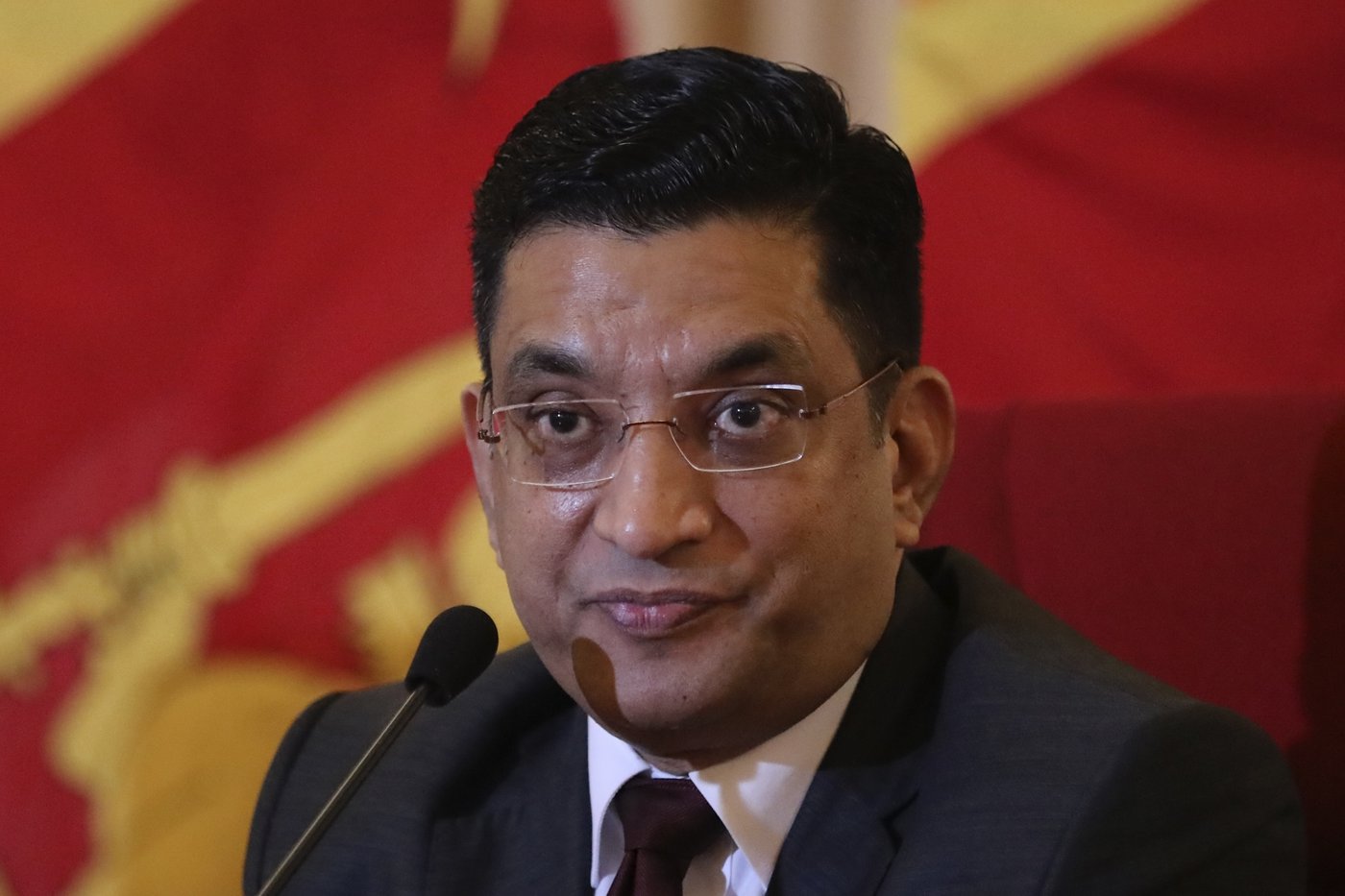Sri Lanka has summoned Canada’s envoy over Ottawa’s decision to sanction four high-ranking officials for alleged human-rights breaches.
That country’s government is accusing Ottawa of caving to Tamil diaspora politics in sanctioning two former presidents and two military officers.
The decision “sets a dangerous precedent,” the South Asian state’s foreign-affairs ministry said in a Tuesday news release.
Ottawa announced Monday that it was barring two former presidents from entry to Canada — Gotabaya Rajapaksa, who resigned last July, and his older brother Mahinda Rajapaksa.
The pair were in power when Sri Lanka’s army defeated Tamil separatists who had waged a bloody, 26-year civil war with the country’s majority Sinhalese population.
Gotabaya temporarily fled his country last summer amid mass protests over living costs, while Mahinda resigned from his post as prime minister last spring.
Ottawa also sanctioned two senior military officers.
One is Sunil Ratnayake, whom a court sentenced to death for his role in a massacre of Tamils in 2000, only to be pardoned by Gotabaya. The other is navy commander Chandana Prasad Hettiarachchi, who has been accused of abducting civilians who were later killed.
In addition to the entry ban, the four can no longer make financial dealings within Canada. The announcement gained substantial media attention in South Asia.
Sri Lanka Foreign Affairs Minister Ali Sabry summoned the Canadian Acting High Commissioner Daniel Bood over the move Tuesday and urged Ottawa to “review the decision.”
Sabry said in a statement that the sanctions were based on “unsubstantiated allegations” and “domestic political compulsions” and could hinder postwar reconciliation within the country.
He said the move “sets a dangerous precedent and is inimical to Sri Lanka’s interest” as it tries to work with elected Tamil representatives on a devolution and peace plan.
Sabry’s ministry went on that the decision leaves democratically elected leaders “vulnerable to arbitrary, external decisions” that aren’t based on due process.
Haiti’s former prime minister Laurent Lamothe made the same argument in a December court filing, contesting Canadian sanctions that Ottawa based on his alleged support for violent gangs.
The office of Foreign Affairs Minister Mélanie Joly argued all four of the Sri Lankan officials being sanctioned are responsible for “the senseless loss of human lives,” and said Canadian officials use a thorough process to evaluate who merits sanctioning.
“Victims and survivors of gross human-rights violations deserve justice,” spokesman Adrien Blanchard said in a statement.
“We are sending a clear message that those who have committed gross human-rights violations in Sri Lanka must answer for the suffering they have caused.”
Sri Lanka’s current president, Ranil Wickremesinghe, took office last July after economic turmoil that led to a rise in child malnutrition and a shortage of medical equipment.
Last month, Wickremesinghe said his country has “undergone the bleakest of times, immense hardships” due to last year’s “abject economic collapse.”
Sri Lanka’s foreign ministry said it was poor timing for Ottawa to implement the sanctions, and argued the move “was in contravention of established diplomatic practice, disregarding existing channels of regular bilateral interaction.”
It said that Canada has a role to play as peacemaker, given its own large population with Tamil roots.
Yet Joly’s office doubled down Tuesday, suggesting the country isn’t doing enough.
“We continue to call on Sri Lanka to take concrete actions to uphold its human-rights obligations and to establish a meaningful accountability process,” Blanchard said.
This report by The Canadian Press was first published Jan. 11, 2023.
